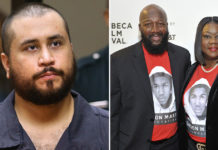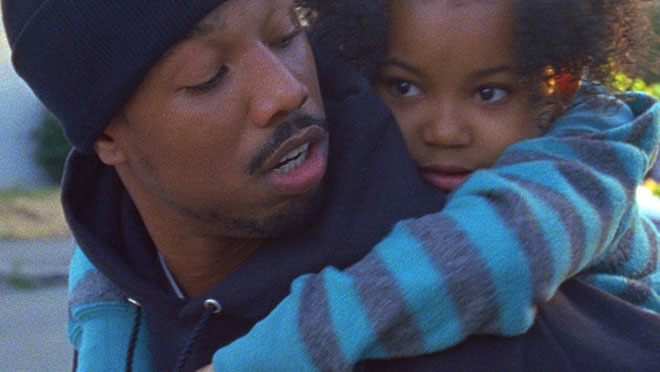
“Fruitvale Station,” in theaters Friday, offers a haunting portrait of one of the most shocking racially fueled incidents in recent memory.
On New Years Day 2008, Oakland, Calif., resident Oscar Grant and a group of his friends were pulled from a a Bay Area Rapid Transit train after they were reportedly involved in a fight that broke out.
The African-American men were beaten and taunted by police. Grant, who was unarmed, was handcuffed and thrown to the floor. Though he posed no threat at that point, one of the officers, Johannes Mehserle, shot him in the back.
Grant died in a nearby hospital hours later. The horrifying crime would have been just another racially motivated police killing, except that several bystanders captured it on their cellphones. Video of Grant being pushed to the ground, stepped on and shot was broadcast on news stations across the country and viewed by millions via the web.
Mehserle allegedly meant to reach for his Tazer, not his gun. He would serve just 11 months in prison after he was acquitted of manslaughter.
Written and directed by Ryan Coogler, “Fruitvale Station” stars Michael B. Jordan as Grant. The riveting docudrama begins with actual footage of the young man being shot and from there– illustrates his last day alive.
The acclaimed film doesn’t ignore the low points of Grant’s past or the struggles he was facing at the time of his death. Instead, we are given a realistic sketch of someone who many can identify with.
Coogler is skilled in that he is able to create a film so mesmerizing, you almost believe, if only for a moment, that perhaps Grant will make it until the end.
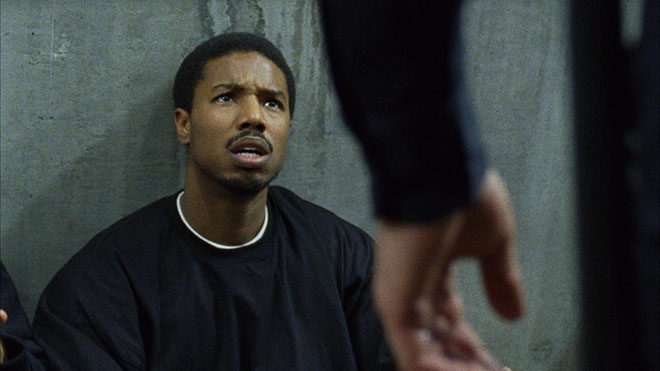
For Jordan, who has wowed on the small screen in shows like “The Wire” and “Friday Night Lights,” the role hit close to home.
“It could have been me,” the actor said at a New York roundtable to promote the film. “Oscar would have been 27, I’m 26.”
Jordan added, “He’s from Oakland, I’m from Newark, New Jersey. Oakland has the same kind of relation to San Francisco that Newark has to Manhattan. I used to take the PATH train over (to Manhattan) all the time for auditions. I used to come into contact with (the transit police) all the time and those situations could have easily escalated into a situation like Oscar Grant’s.”
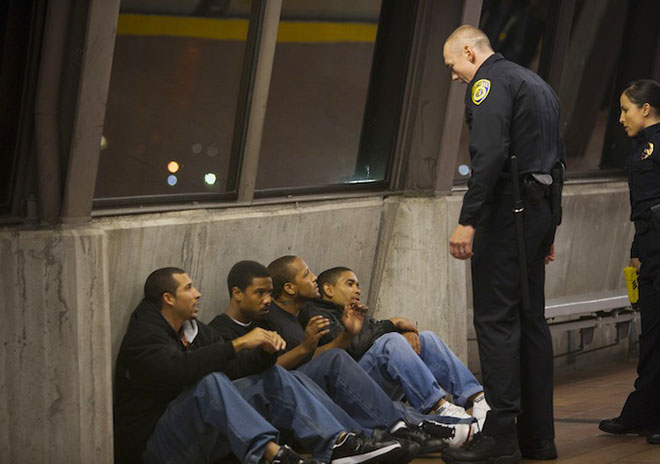
Luckily Jordan hasn’t experienced the death of a loved one to police brutality, but he has seen first hand how black men are often bullied and mistreated by law enforcement.
“I’m a young black man from Newark, New Jersey. I’ve had my run ins with the cops,” he said. “Me and my friends have been harassed and pulled over way too many times, handcuffed, left on the side of the road. I’ve had my car towed, told my driver’s license was suspended when it wasn’t and had to walk home.”
Perhaps what makes “Fruitvale Station” that much more compelling, is that it acknowledges the women in Oscar’s life and the suffering they endured as a result of the tragedy.
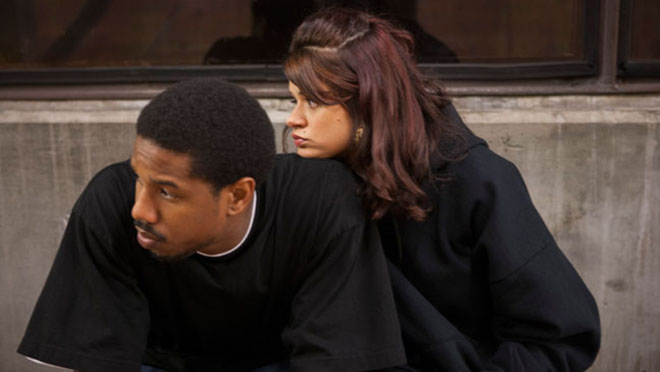
This includes his mother (Oscar-winner Octavia Spencer) grandmother (Marjorie Shears), longtime girlfriend Sophia (Melonie Diaz) and daughter Tatiana (Ariana Neal).
“I think Sophia is an example of the many women left behind. That to me is upsetting because that’s another tragedy,” Melonie Diaz said.
Diaz added that the film touches on themes that are both timely and evocative.
“I feel like in wake of the Trayvon Martin case and even with the repeal of DOMA, there apparently is an issue with how we chose to perceive and judge each other based on the color of our skin or our sexual orientation,” Diaz said. “There’s a lot of hatred and unkindness that’s happening now and I feel that this movie is a step forward in terms of bringing these social issues to the forefront of people’s minds.”
Director Ryan Coogler, who began his career as a counselor for incarcerated youths, decided to make the film largely due to his personal connection to the case.
“I was deeply emotionally affected by it because I was in the Bay Area when it happened,” Coogler said. “I was born and raised there, was the same age as Oscar, same ethnicity, we dressed the same, same complexion. So when I watched this tape and saw his friends, I couldn’t help but to see myself in that situation.”
“Obama had just been elected,” he added. “California was the state that put him over and we were really excited, so for that to happen and for it to be photographed like it was, for him to get shot with a knee to his head seconds after being called the N-word by police — it was something that set the Bay into a frenzy.”
The film is more than just an exploration of one case, it also reminds us of various other victims who have met their end in a similar manner.
Most will recall the highly publicized shooting of Amadou Diallo, a West African immigrant who was shot 19 times by police because they mistook his wallet for a gun. Despite the attention the case received, none of the officers involved were acquitted of second-degree murder charges. The unsettling tragedy took place in 1999 and unfortunately, not much has changed since then.
Last April, police shot and killed Kendrec McDade, a 19-year old Pasadena resident who was unarmed, after responding to a robbery that he reportedly had a hand in. His family later filed a wrongful death suit.
In one of the more harrowing cases, Timothy Russell and Melissa Williams were shot at 137 times by Cleveland police following a car chase in December 2012. According to The Root, though police claimed they spotted a weapon, none was found at the scene.
This past March, 16-year-old Klmani Gray was shot four times by NYC Police as he was leaving a friend’s birthday party. According to the only eyewitness at the scene, the teen was unarmed when police fired.
So will a project like “Fruitvale Station” effect this chronic problem? Jordan hopes that will be the case.
“Hopefully, this film can spark a conversation about the way we treat one another, and our value of life.”

